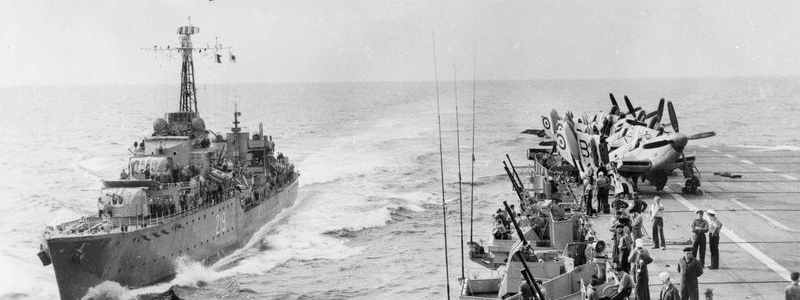The Royal Navy and Coalition Operations in the Korean War
by Dr Tim Benbow With much attention being devoted to multinational coalition operations, the Korean War (1950-1953) provides an interesting case study. Ian Bower has just published an edited volume devoted to this subject, to which I contributed a chapter on the Royal Navy. When North Korea invaded South Korea in June 1950, the principal… Read More The Royal Navy and Coalition Operations in the Korean War









